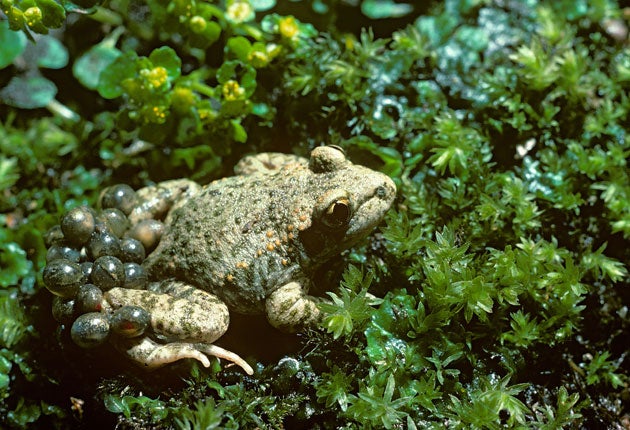The world’s biodiversity is on the brink. Can a UN summit make a difference?
Up to one million species face extinction. Environment Correspondent Daisy Dunne explores what’s at stake at this week’s UN biodiversity meeting hosted by China


Statistics on the state of a natural world make for sombre reading. Humans and livestock now make up 96 per cent of the weight of mammals on Earth. Half of the planet’s surface is farmed. Up to one million species face extinction.
It has also never been clearer how much we humans rely on nature. More than half of the world’s GDP is dependent on it. Around three-quarters of all crops rely on pollinators.
To this backdrop, world leaders are meeting virtually this week for the first leg of a UN biodiversity conference, known as Cop15, being hosted by China.
The meeting has received far less attention than the UN climate summit, Cop26, taking place in person in Glasgow in November, and has already been delayed multiple times as a result of the Covid-19 pandemic.
This is despite multiple warnings from scientists that the world’s climate and biodiversity crises must both be tackled in unison if the planet’s fortunes are to be reversed.
Like the Glasgow summit, Cop15 will see world leaders come together to agree new targets. High on the agenda needs to be an agreement to stem the damage caused by factory farming, says Prof Nathalie Seddon, founding director of the Nature-based Solutions Initiative at the University of Oxford.
“The biggest threat to global biodiversity on land is industrial agriculture,” she tells The Independent.
“The supply chain of commodities like beef, dairy and soy does huge damage to the biosphere – especially through deforestation. We need commitments to defund this deforestation.”
The destruction of tropical forests, reservoirs for wildlife as well as carbon, rose by 12 per cent in 2020, when compared to the year before. A recent UN report found that almost 90 per cent of the $540bn in global subsidies given to farmers each year can be considered “harmful” to nature.
“We need to repurpose our agricultural subsidies,” says Prof Seddon. “Much of this goes to high-emitting commodity production that is extremely damaging to biodiversity. It is destroying ecosystems.”
Andrew Deutz, global policy lead at environmental organisation The Nature Conservancy, agrees that reforming harmful subsidies should be “top of the list for the summit”.
“As the global economy rebounds from the pandemic, there are so many opportunities for domestic economic interventions that will help to shape production and consumption patterns in more nature-positive and climate-neutral directions,” he says.
Existing pledges that have been made to protect biodiversity must be “underpinned by well-resourced, actionable plans”, adds Prof Seddon.
“You can commit to being ‘net-positive for nature’, but what does that actually mean? Have you got a proper plan in place? Is it backed up by the latest science?”
She adds that efforts must also be made to ensure that indigenous voices are included within biodiversity talks.
Research shows that in almost every country in Latin America and the Caribbean, rates of deforestation are lower in land where the rights of indigenous peoples are protected than in areas where they are compromised.
But a record 227 land and environmental defenders were murdered in 2020 – with more than a third of all attacks targeted at indigenous people.
“These people are protecting environments of global significance,” she says. “What happens to, for example, the tropical forest in the Amazon basin affects the whole planet.”






Join our commenting forum
Join thought-provoking conversations, follow other Independent readers and see their replies
Comments